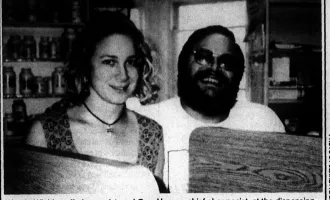MIND Your Career
UCSF's new plan for building a better biomedical workforce
Career development. It’s a phrase that is slowly gaining mass in the realm of biomedical sciences.
Prior to the summer of 2012, when the NIH released its report on the biomedical workforce, the concept of career development whispered through the halls of UCSF; frequently heard by some, rarely listened to by many. It is still common to hear graduate students and postdocs lamenting their vague future, unsure where they’ll be after their training is complete.
Recent reports by both the NIH and the Graduate Division at UCSF found nearly half of all biomedical graduate students leave academia after completing their training. Only half of those remaining in academia obtain tenure track positions. This evidences the fact that a growing number of PhDs are pursuing careers other than that of academic research, but how are these career paths being found? In a system built to develop great thinkers, assumed to fill the ranks of academic research, where can one find the necessary time, resources and support to become informed about these (no longer) “alternative” career options?
At UCSF, a new program aimed at changing the culture of career development at both an individual and institutional level is on the horizon. Last year, UCSF received a grant from the NIH Broadening Experiences in Scientific Training for their proposal “Motivating Informed Decisions (MIND): Careers For The Future Biomedical Workforce.” This proposal, authored by Dr. Keith Yamamoto, Dr. Theresa O’Brien, Bill Lindstaedt and Dr. Jennie Dorman, hopes to improve the career development of trainees by increasing individual awareness and knowledge of the variety of careers available, helping trainees develop the skills and network they need to pursue their chosen career, and building an environment at UCSF that is supportive of all career paths.
In general, most trainees are aware of their career options in broad terms, but becoming educated in the structure of every career path and the skill sets required of each is difficult. Furthermore, once the necessary knowledge is gained, arriving at a decision for one’s future may be even more daunting.
To overcome these challenges, the MIND program aims to direct participants towards proper resources for researching career paths and assist in the decision process by coaching participants to utilize universal skills gained during graduate and post-doctoral training: critical thinking and problem solving. Framing career decisions as a research project, rather than a complex life decision, and providing the means to address each question within that project will allow trainees to view career issues more appropriately and comfortably arrive at their career path of choice.
Once a career path is chosen though, it can be tough to fully immerse one’s mindset into the field of choice. Many trainees may experience career “identity” crises, feeling like they’re leaving (or even quitting) academia for a new, unfamiliar field while failing to identify with either.
To overcome this, the MIND program plans to ease participants into the professional network of their chosen career path. With over 40 external partners constituting a variety of professions, including industry research, business development, entrepreneurship, intellectual property law and science policy, participants will have the opportunity to make numerous meaningful connections with professionals in their field of choice via informational interviews, short-term internships, job shadowing and simulation exercises and more.
The authors of the MIND program believe that when trainees have both a thorough understanding of the demands of a given career path and the beginnings of a professional network in that area, they will embrace their new career identities and confidently embark on the training necessary to find future success.
Cultivating acceptance of different career paths does not stop at the individual level, though. Creating a supportive environment that promotes many different career options is key to producing trainees that ultimately thrive in their chosen careers. The MIND program hopes to build such an environment by first assessing the strengths and shortcomings, both real and perceived, of the career development culture at UCSF.
After establishing a baseline, strategies potentially including improved mentorship training, a seminar series about different careers, and even modifications to graduate program coursework will be developed to improve the baseline culture. If successful, this aspect of the MIND program could radically change the concept of both graduate and post-doctoral training, better preparing the future biomedical workforce for the bevy of career option available to them.
The MIND program for UCSF graduate students and postdocs will launch in Fall 2014, starting with an inaugural class of approximately 32 trainees and expanding to upwards of 124 trainees by year four. It is a one of the many steps UCSF is taking to address career development challenges in post-graduate training.


